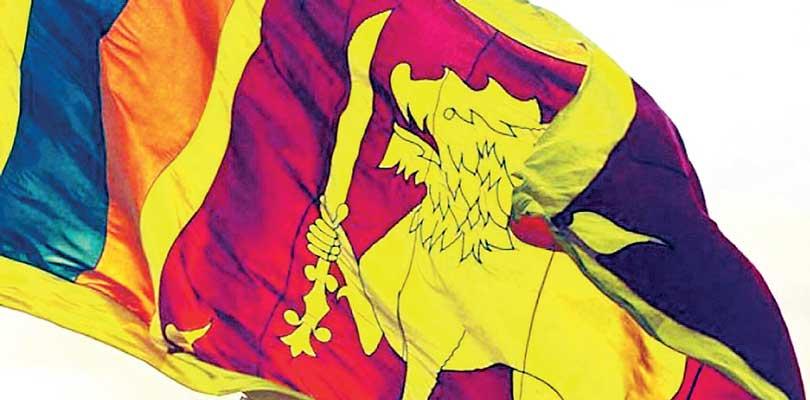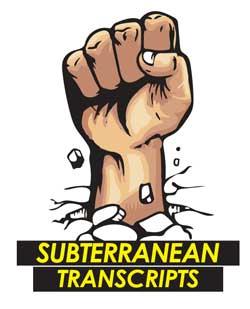Reply To:
Name - Reply Comment

 There are words that seem to be very popular among politicians and political groups when it comes to naming a new part or coalition. ‘Jathika’ or ‘National’ would top the list. We have the Eksath JATHIKA Pakshaya (United NATIONAL Party). Whenever this party led coalitions, ‘pakshaya’ was replaced with ‘peramuna’ or ‘front,’ but ‘jathika’ was left intact
There are words that seem to be very popular among politicians and political groups when it comes to naming a new part or coalition. ‘Jathika’ or ‘National’ would top the list. We have the Eksath JATHIKA Pakshaya (United NATIONAL Party). Whenever this party led coalitions, ‘pakshaya’ was replaced with ‘peramuna’ or ‘front,’ but ‘jathika’ was left intact
There are others. There are 86 parties registered with the Elections Commission at present. Four (4) of that have the word ‘jathika’ in their names, thirteen (13) have ‘national,’ one has it as ‘thesiya’ (again, ‘national’), nine (9) have ‘Sri Lanka,’ five (5) have ‘Lanka,’ one (1) has ‘Hela, ’one (1) has ‘Ilankai,’ one (1) has it as ‘Illankai,’ one (1) has ‘desha,’ one has ‘Maubima’ or ‘Motherland,’ and three (3) have ‘Ceylon.’
 Some parties/coalition seem to have been fixated on shoving in all the nice words into the name they register: national, people, front, democratic, united, alliance, democratic and of course the name of the country or some reference to it such as Sri Lanka, Lanka, Ilankai and Ceylon. People (or ‘Janatha’ in Sinhala and ‘Makkal’ in Tamil) is also popular. In some cases, the preferred word is the truncated form ’jana’ or the elaboration ‘podujana.’
Some parties/coalition seem to have been fixated on shoving in all the nice words into the name they register: national, people, front, democratic, united, alliance, democratic and of course the name of the country or some reference to it such as Sri Lanka, Lanka, Ilankai and Ceylon. People (or ‘Janatha’ in Sinhala and ‘Makkal’ in Tamil) is also popular. In some cases, the preferred word is the truncated form ’jana’ or the elaboration ‘podujana.’
One has ‘Republican,’ and although it contains ‘people’ (the word being derived from Latin, rēs (“thing”) + pūblica (“public”) and hence literally ‘the public thing’) it has more ideological undertones, much like ‘socialist’ (6 parties have it in their names) and ‘democratic’ (18).
What’s interesting is that the claims embedded in the names are not reflected in the practices. We don’t need to get into that. Parties that have ‘national’ in their names have betrayed the nation. Those who don’t, aren’t necessarily traitors. The same goes for democratic and socialist. Names. Just names.
The United Republican Front was officially launched just ten days ago (May 22, 2023). Its potential has to be assessed in terms of the track records of its leaders. It provides, however, an opportunity to talk of republicanism.
The idea of a republic emerged in a context of a political need to abolish monarchical rule. The primacy of citizen and citizenship underpin republicanism. Republics are of many kinds, as history has shown, but in the Sri Lankan context the word obtained relevance from the need to unshackle the country from the British Empire. This is why it is more sensible to have May 22, 1972 as ‘Independence Day’ and not February 4, 1948. We became a republic in 1972. In 1948 we were still subjects of King George VI and therefore beholden to the British Crown.
Of course, we reverted to February 4 after the United National (sic) Party came to power in 1977. Ironically, even as we adopted a new constitution in 1978 and called it the Second Republican Constitution, we not only disavowed the significance of May 22, 1972 but were turned into a citizenry ruled by a president with close to monarchical powers.
And, partly but not wholly attributed to the 1978 constitution, we’ve had to live in a country with a reduced value for citizenship. The feudalism that marked the early decades of independence survived. Citizens, even in reduced circumstances, played their part in the persistence of this state of affairs. Governments were associated with personalities and families, not ideology or meritocracy: the Senanayakes and Wijewardenas of the UNP and the Bandaranaikes and Rajapaksas of the Sri Lanka Freedom Party. Of these, the Rajapaksas were the most conspicuously monarchical, which is of course not to say that the other major political families did not and does not have similar sway. The Rajapaksas were more in-your-face.
Republicanism was not touted in name but the ideas certainly were. The word ‘republic’ didn’t make it to the public discourse, but the relevant attributes were written into demands, scripted into speeches and pencilled into manifestoes, the last of which have not persuaded anyone to take notice, considering that parties and coalitions voted into power have all treated them as irrelevant the moment they were declared winners.
So ‘republican’ is not necessarily a bad choice for inclusion in a party name. In the very least it is an umbrella term that can accommodate the long wish-list frequently articulated by those who consider themselves liberals and radicals (but, let us not forget, frequently align themselves openly with political parties and leaders who have monarchical aspirations).
Ok, let’s see we establish the republican ideal in the sense of formal representative democracy and rules that affirm the principle of meritocracy. All done? No more issues?
It’s still a system of governance that formally recognises citizens and citizenship. That’s political. How about the economic issues? How about the political economic issues? How about the system of legally extracting value, legally exploiting? What do republicans have to say about the neoliberal economic theories that make for subjugation, enslavement, impoverishment and, not least of all, are part of a development paradigm that seriously compromise the health of the planet? Are they ‘separate issues’ or are they annoying issues best left unmentioned?
Of course monarchies can be affirmed even in a republic. We have the Kennedys, Bushes and Clintons in the USA, don’t forget. And even if we didn’t have such dynasties can it not be argued that stripped of egalitarian rhetoric democracy in practice is nothing but serial feudalistic regimes? And how about class, by the way?
Reducing it all to an assessment of relative merits comparing republics and monarchies is a side-stepping of important issues. The problem is that republicans will not say ‘republicanism is necessary but not sufficient.’ They talk and act as though republicanism is an end in and of itself or, as some argue, it is The End. Period.
The truth is republicanism is as stinking a dead cat as is any nationalism that ignores the very same things that republicans do not want to touch.
Republic. Nice term, but in essence a distraction. Republics are not islands. Sri Lanka as a true republic would still have to exist in a unipolar world where nations suffer varying levels of subservience. It’s a ‘public thing’ where people are counted occasionally but are for the most part counted out. And those who don’t want to unpack republicanism are either slothful or are invested in preserving elements of the status quo that matter to them: the sustained development of operations that allow profit, entail slavery of one kind or another and ensure planetary degradation (and the ability to activate coercive mechanisms if this status quo comes under threat).
There are republicans to die for, but the ones proposed by republicans are more likely republicans one continues to run the risk of being run over by the powerful, the demented, the closet monarchs and their apologists.
[email protected].
www.malindawords.blogspot.com.